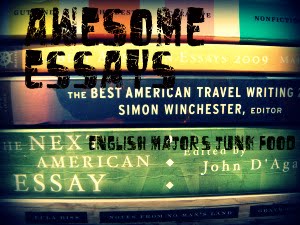Merry Wanderer of the Night [Search results for energy]
The Solar Energy Absorber
The Department of Lost & Found, by Allison Winn Scotch

Leif Reads: Eaarth and 350.org

Rising of the New Moon
Montaigne Mondays: Week Three

Awesome Essays: The Death of the Moth

Leif Reads Eaarth: Climate Change

Catching Up
Author Guest Post: Karen White, Author of The Lost Hours

FAIRY TALE FORTNIGHT IS COMING!!
Game On Diet Weekly Update

Heritage: Sanctuary of Asclepius in Epidaurus to get a makeover

Sunday Salon: An Unsuccessful Reader

Moon Microbe Mystery Finally Solved: NASA's dirty little secret?

Entertaining ecology in Hamburg
Weekly Geeks 2009-40: Tools of the Trade
Awesome Essays: An End to Sweet Illusions

Just Contemporary Conclusion!
In the European Union since 2010 forbid standard lamps

Opening the Toolbox: WG 2009-40 Round-up




